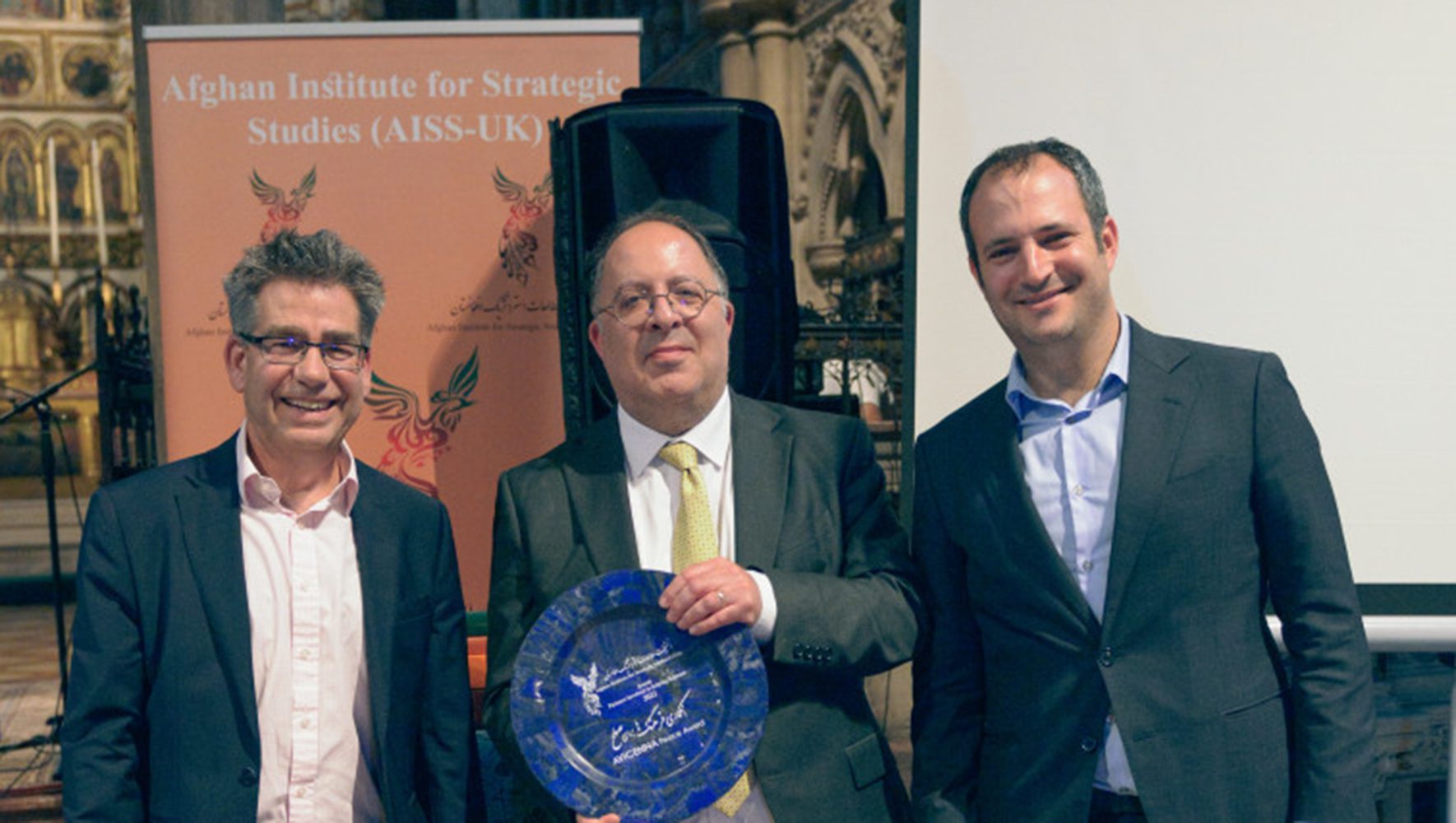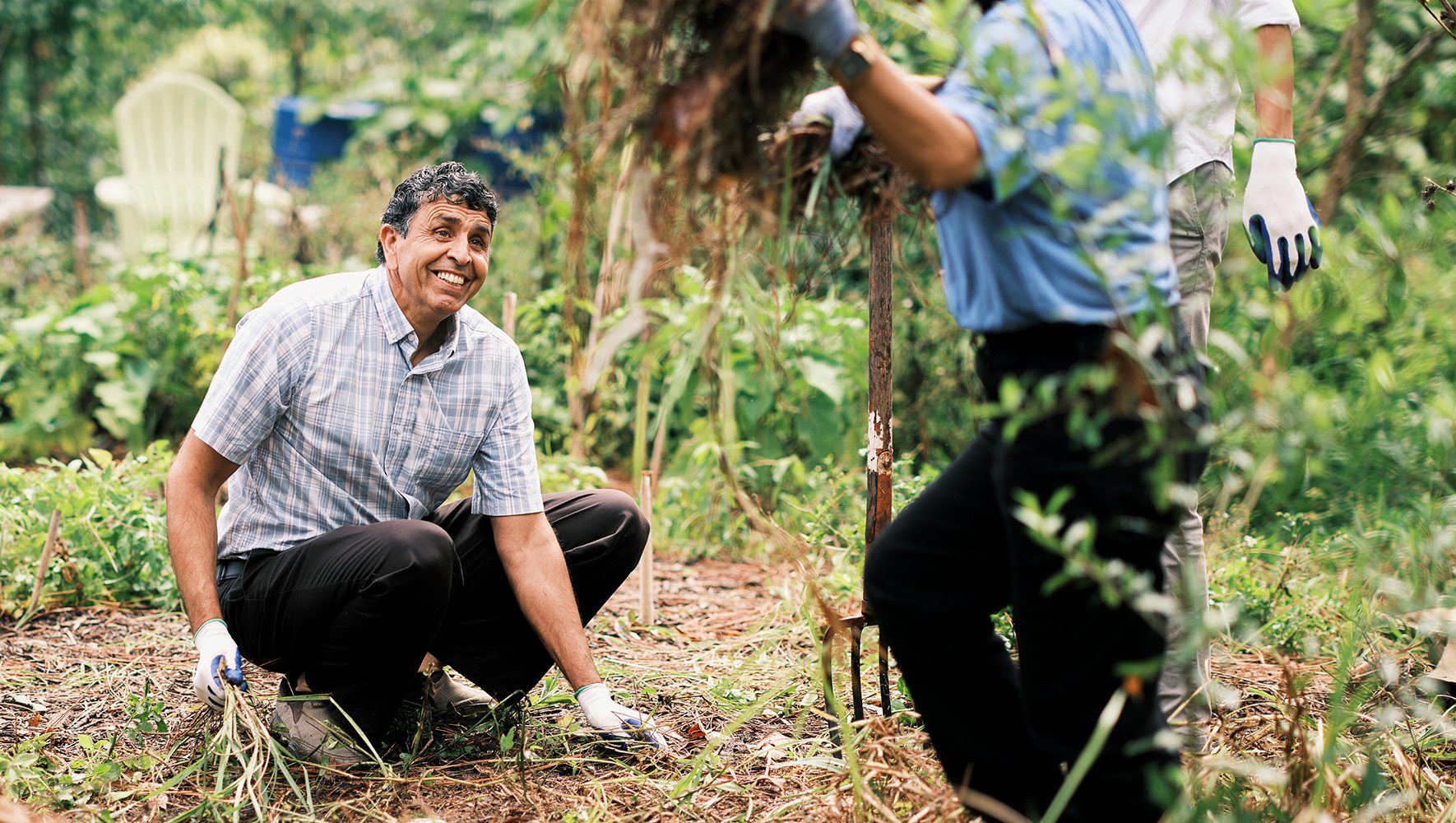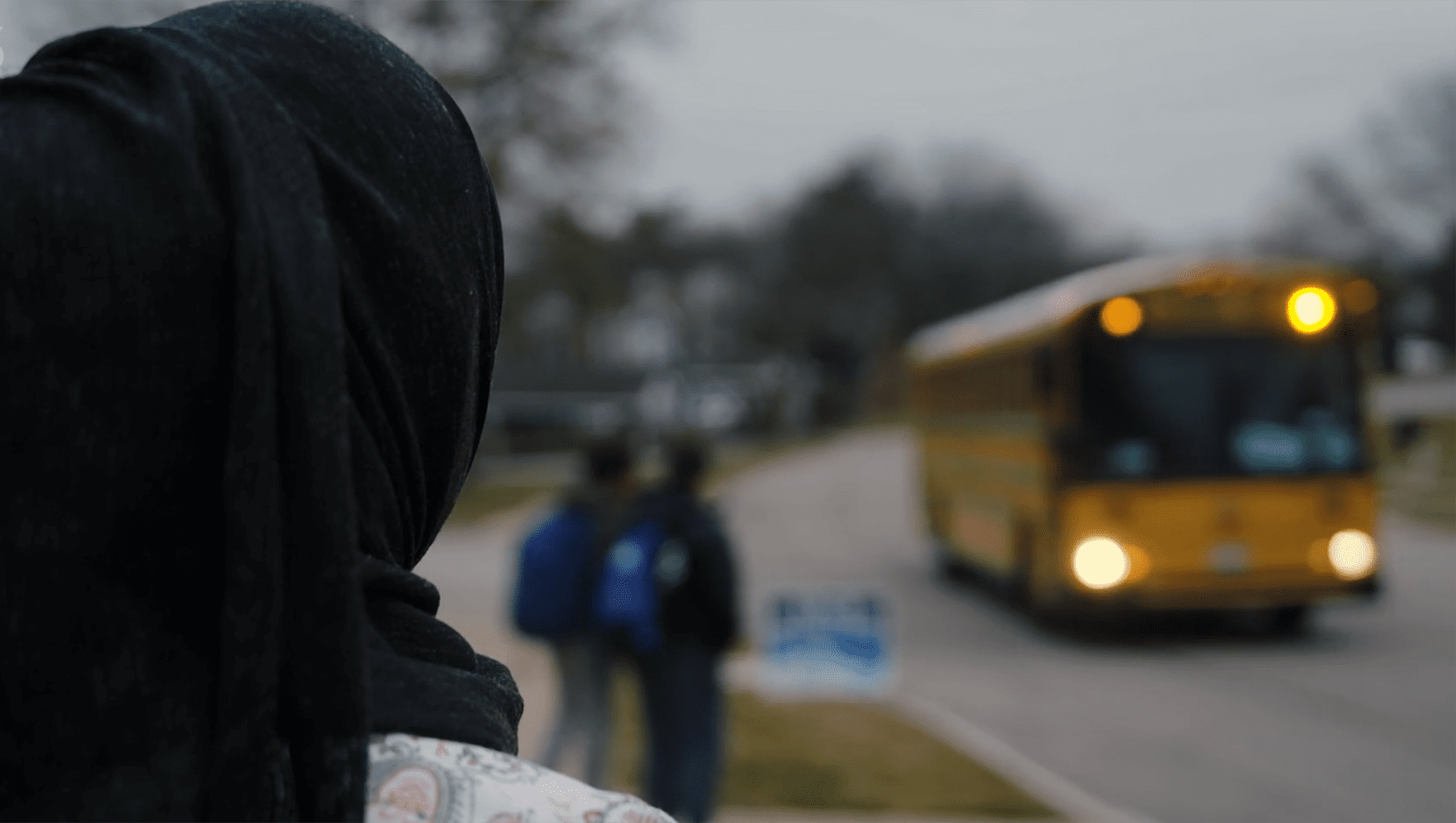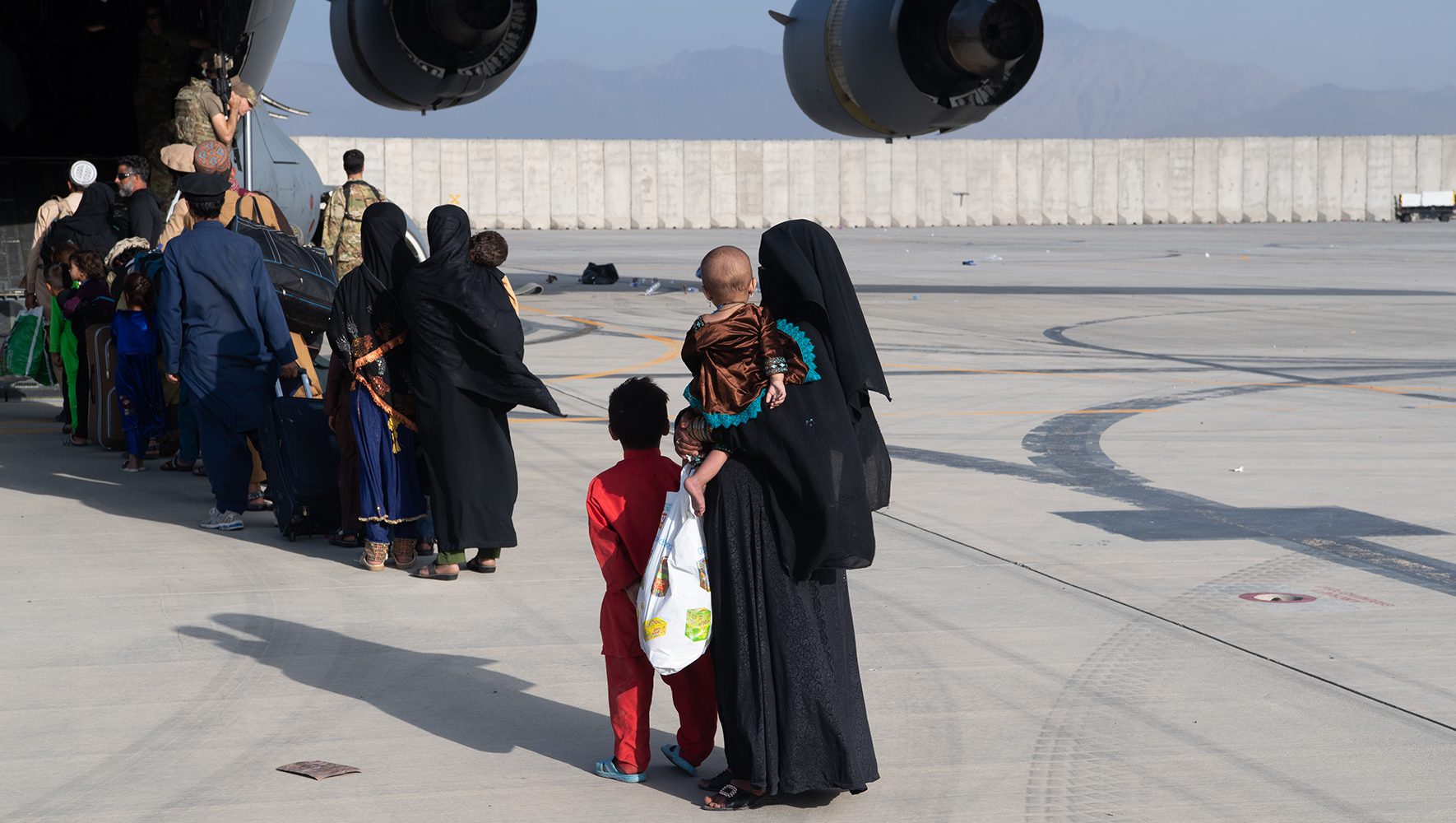WATCH: A Warm Welcome for Refugees in Tulsa
By Dan Friedman
Dec 21, 2021
When HIAS was founded in the late 1800s, it aimed to organize and systematize piecemeal efforts to welcome Jews fleeing pogroms in Russia and Eastern Europe. Some 140 years later, HIAS is a global humanitarian organization, working in 16 countries but is still helping to resettle new arrivals in the U.S., of all colors and creeds.
So last spring, when a Tulsa synagogue approached HIAS to become a resettlement partner, it felt like a blast from the past. But, to Alicia Wrenn, HIAS’ senior director for resettlement and integration, it didn’t make immediate sense. Resettlement is usually done by social service organizations, staffed by professionals and capable of long-term engagements — not houses of worship, whose central aim is organizing communities around prayer.
“None of us sitting here in D.C. or New York knew much about Tulsa, and we weren’t going to entertain a partnership because it’s a very long process and we don’t do this lightly,” Wrenn told eJewishPhilanthropy talking about the approach of Congregation B’nai Emunah.
But this inclusive, non-denominational Tulsa community works differently from most synagogue congregations.
Encouraged since 1985 by Rabbi Marc Fitzerman and, more recently, by Rabbi Dan Kaiman, B'nai Emunah has developed a strong sense of its own story as a century-old refugee community with a “pro-social” commitment. The synagogue’s recent centenary year was marked by a focus on its shtetl roots in Varklan, Latvia – a village wiped out by the Nazis in 1941.
As part of this narrative of belonging, the practice and process of the synagogue is to treat each communal practice, not just prayer, as vital and equally important. So, B’nai Emunah explicitly values congregants’ participation in Tikkun Olam, fixing the broken world in the name of Judaism, whether through Saturday morning prayer or what the website calls the “serious social activism of the congregation.”
B’nai Emunah has long been engaged in a variety of “pro-social” activities that knit together the wider Tulsa community: meal delivery, teaching English as a Second Language, and setting up The Altamont Bakery, a small business through which synagogue members work with some of Tulsa’s homeless, and mentally ill citizens to build their sense of belonging and financial stability.
For some years, in partnership with Catholic Charities of Eastern Oklahoma, the synagogue had also worked with refugees, providing citizenship test prep and ESL classes for refugee mothers. After the 2020 election, in anticipation of rising refugee admissions under a President Biden who had promised to increase annual refugee admissions eightfold, Kevin Sartorius, the CEO at Catholic Charities, suggested to Rabbi Fitzerman that B’nai Emunah become more deeply involved with refugee resettlement.
“He asked ‘Would you do this with me?’” recalls Fitzerman. It was a doubly exciting prospect because it was both a chance to respond to the call of friend and “powerfully committed and Catholic holy man” as well as an opportunity to connect the community’s project work on its oldest commitments. As Fitzerman says, “refugee resettlement couldn’t have pushed more buttons.”
After a short process of discovery, HIAS realized that the congregation was serious, capable and geared up for the long-term engagement necessary for resettlement. Senior vice president of programs Raphael Marcus initially shared Wrenn’s reluctance but now says, “this commitment is starting small, but it's not just a small commitment because really, what's exciting about this congregation is that the potential here is huge.”
Early this summer, after being officially certified as a resettlement site by the U.S. State Department, the Tulsa synagogue committed to resettle 50 refugees. Then in August, the U.S. military’s chaotic withdrawal from Afghanistan and evacuation of nearly 75,000 Afghan refugees, led to an urgent need for resettlement capacity across the country. B’nai Emunah’s original agreement to resettle 50 refugees from various countries quickly grew into an offer to also resettle 50 Afghans. And even that figure increased to 57, as the families and connected individuals come to join people the synagogue has already housed.
The synagogue is embracing the challenge — a stirring sermon from Kaiman on Yom Kippur, drawing on his own experience growing up with immigrant and Holocaust surviving forbears, drew in volunteers and enough donations to satisfy the synagogue’s determination that there should be “no unfunded mandates.” The resettlement would be done professionally with ample volunteer support.
Through its work, B’nai Emunah is demonstrating a profound way to integrate social commitments into spiritual life and to make a real difference. Across the country, congregations are stepping up in many ways, doing “Mitzvah Days” to help arriving immigrants and some are even organizing Welcome Circles to sponsor refugees. Becoming a fully-fledged resettlement agency is not for every synagogue, but it’s another heartening example of how the American Jewish community is standing by refugees.
HIAS is now helping resettle new Americans in more than two dozen cities, up from 17 during the moribund Trump era. But with tens of thousands of Afghans on U.S. bases still waiting to be resettled and with President Biden authorizing 125,000 new Americans to arrive by October 2022, HIAS and every newly-arrived family need all the inspirational new models they can get.






